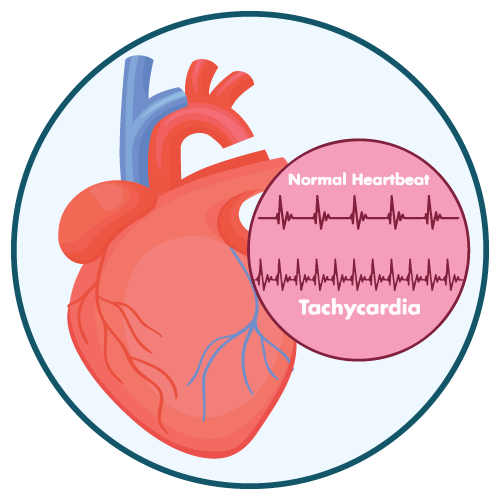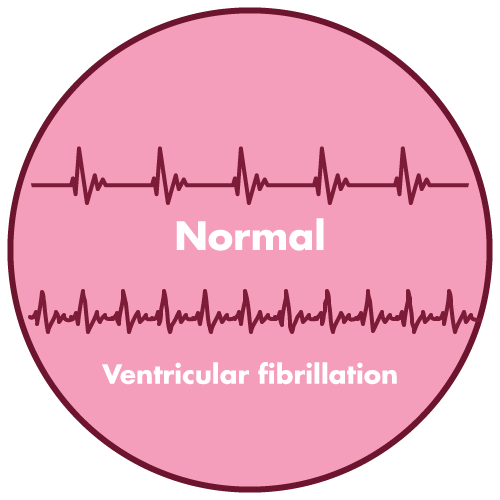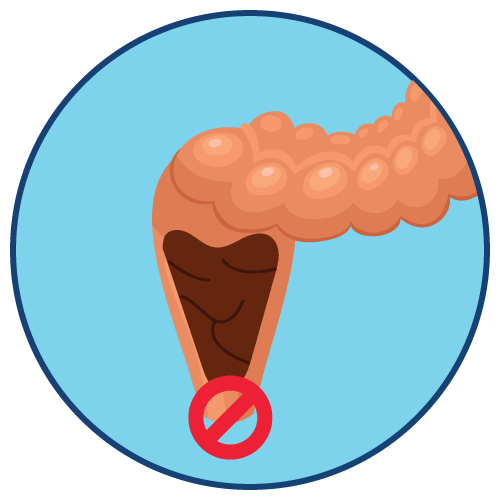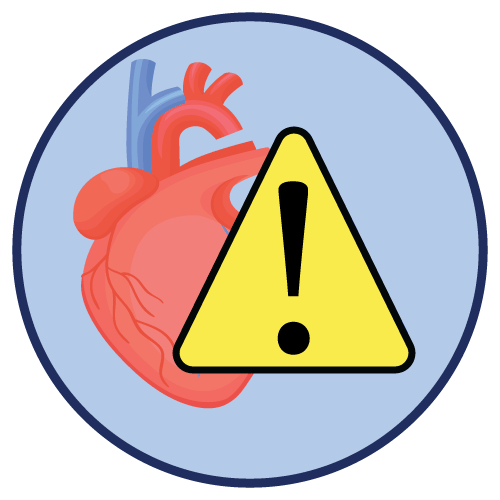| Name | Disopyramide |
| Classes |
Cardiovascular Agent Antiarrhythmic Agent Sodium Channel Blocker |
| Diseases |
Cardiovascular Disease Irregular Heartbeat |
Disopyramide
Disopyramide is a Class IA antiarrhythmic drug that acts primarily by blocking sodium channels in cardiac myocytes, prolonging the action potential duration and refractory period. It also exhibits anticholinergic properties, which contribute to its antiarrhythmic effects.
Disopyramide is indicated for the treatment of:
- Ventricular arrhythmias, including ventricular tachycardia and ventricular fibrillation.
- Supraventricular arrhythmias, including atrial fibrillation and atrial flutter, particularly when accompanied by congestive heart failure.
- Take 300 mg to 800 mg daily, divided into separate doses.
- For older individuals, it is advisable to decrease the dosage considering diminished renal and hepatic function, particularly in elderly non-smokers.
Common side effects of disopyramide include-
- Dry mouth
- Blurred vision
- Urinary retention
- Constipation
- Nausea/vomiting
- Dizziness
- Proarrhythmic Effects: Disopyramide can exacerbate existing arrhythmias or precipitate new arrhythmias, particularly in patients with structural heart disease. Monitor cardiac rhythm closely during therapy.
- Anticholinergic Effects: Use caution in patients with glaucoma, urinary retention, or gastrointestinal obstruction, as disopyramide's anticholinergic effects can worsen these conditions.
- QT Prolongation: Disopyramide may prolong the QT interval, increasing the risk of torsades de pointes and other ventricular arrhythmias, especially at higher doses or in patients with electrolyte abnormalities.
- Hepatic Impairment: Use with caution in patients with hepatic impairment, as disopyramide is primarily metabolized in the liver. Dosage adjustments may be necessary.
- Pregnancy and Lactation: Use during pregnancy only if the potential benefit justifies the potential risk to the fetus. Disopyramide may be excreted in breast milk; breastfeeding should be avoided during treatment.
- Given the recognized proarrhythmic characteristics of disopyramide and the absence of proof indicating enhanced survival with any antiarrhythmic medication in patients lacking life-threatening arrhythmias, the utilization of disopyramide and other antiarrhythmic agents should be restricted to individuals experiencing life-threatening ventricular arrhythmias.
Contraindication
Disopyramide phosphate capsules are contraindicated in patients with known hypersensitivity to the drug.
None known.
Disopyramide phosphate capsules are contraindicated in-
- cardiogenic shock
- preexisting second- or third-degree AV block (if no pacemaker is present)
- congenital Q-T prolongation
 Bangla
Bangla English
English







